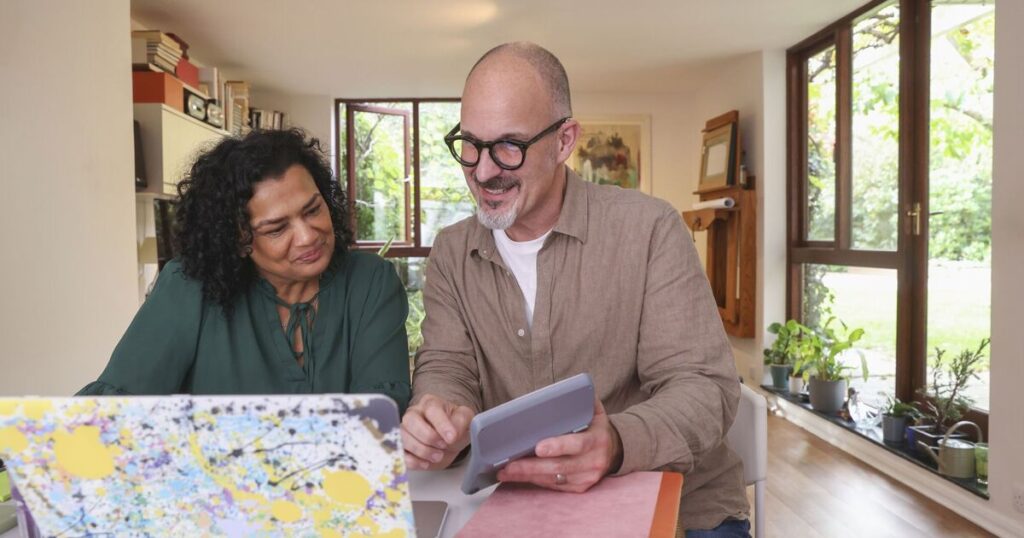
A new ‘easy read’ guide to help people with disabilities negotiate the complex process of claiming Personal Independence Payment (PIP) has been published by the Department for Work and Pensions (DWP).
PIP is currently worth up to £737 a month for those who qualify for both the enhanced daily living and mobility components.
However, campaigners have long criticised the complexity of the system, with many vulnerable people struggling to complete long forms, gather evidence or attend assessments.
The 40-page booklet, titled Get Help from Personal Independence Payment, sets out in plain English – with the help of illustrations – how the benefit works and how to apply.
The DWP guide explains: “Personal Independence Payment is money for people who have difficulty with daily living or getting around because of a long-term health condition or disability. It is not means-tested. This means it does not matter how much money you earn or have saved.”
The DWP says the guide is intended to “help you understand what Personal Independence Payment is and how to claim it.”
Who can claim PIP?
The guide sets out clear criteria for eligibility. You can apply for Personal Independence Payment if:
- You are aged 16 or over and have not reached State Pension age.
- You have a health condition or disability.
- You have had this health condition or disability for 3 months.
- You think it will last another 9 months.”
Importantly, the document stresses: “You do not need to have a diagnosis from a doctor or other medical professional.
“We will look at how your condition affects you and what support you need.”
What does PIP help with?
The guide explains that PIP is designed for people who need extra support with:
- Washing, bathing, or using the toilet
- Getting dressed or managing clothes
- Preparing and eating food
- Taking medicine or managing treatments
- Talking, listening and understanding
- Being with other people
- Managing money
- Planning a journey or moving around
The guide states: “We will look at how well you can do each activity and how often you need support.”
How does the assessment work?
The DWP uses health assessments to decide eligibility. The guide says:
“We will ask an independent health professional to find out how your condition affects your daily living and getting around.
“This will be a phone call, video call or face-to-face meeting. The health professional will ask questions about how your condition affects you and what support you need.”
Claimants are advised they can bring someone with them for support, and that they will be given an opportunity to explain their needs fully:
It adds: “You can tell us things you think we should know about your condition and the support you need.”
How much is PIP worth?
PIP component Weekly rate Monthly equivalent
Daily Living – Standard £72.65 £290.60
Daily Living – Enhanced £108.55 £434.20
Mobility – Standard £28.70 £114.80
Mobility – Enhanced £75.75 £303.00
The guide cautions that not everyone who applies will receive the benefit, stating: “We will send you a letter with a decision. It will tell you if you can get Personal Independence Payment and how much money you will get.
« Not everyone will get Personal Independence Payment.”
How to apply
The guide tells claimants to start by calling the PIP claims line. They can ask someone to help or speak on their behalf.
The number to call is: Telephone: 0800 917 2222; Textphone: 0800 917 7777
Lines are open Monday to Friday, 9am to 5pm.
The document also explains that help is available through Citizens Advice and local support groups.
It states: “If you find it hard to claim, someone can help you. This could be a friend, family member, carer or support worker. You can also ask a support organisation like Citizens Advice.”
The new guide can be downloaded from the official GOV.UK website.
What support can PIP unlock?
In addition to cash payments, receiving PIP may entitle people to other help.
The guide explains:
You may also be able to get other support such as:
- Support with housing
- Help with travel
- Blue Badge for parking
- A Motability vehicle
- Help with NHS health costs
- Help with getting a job
- Carer’s Allowance for your carer
It adds that PIP can also open the door to extra money through other benefits, stating:
“You may get extra money with benefits like »:
- Universal Credit
- Income Support
- Housing Benefit
- Pension Credit
- Employment and Support Allowance
- Jobseeker’s Allowance
- Working Tax Credit
